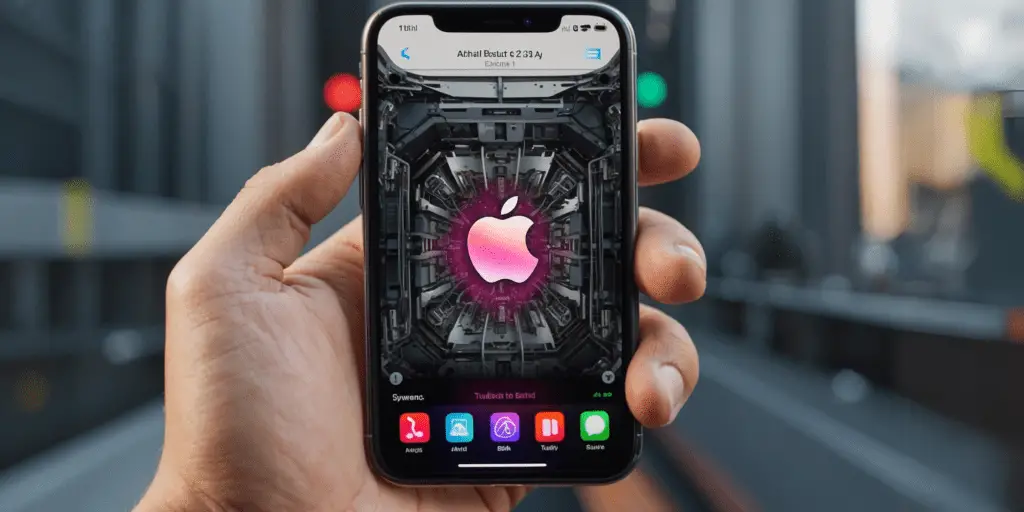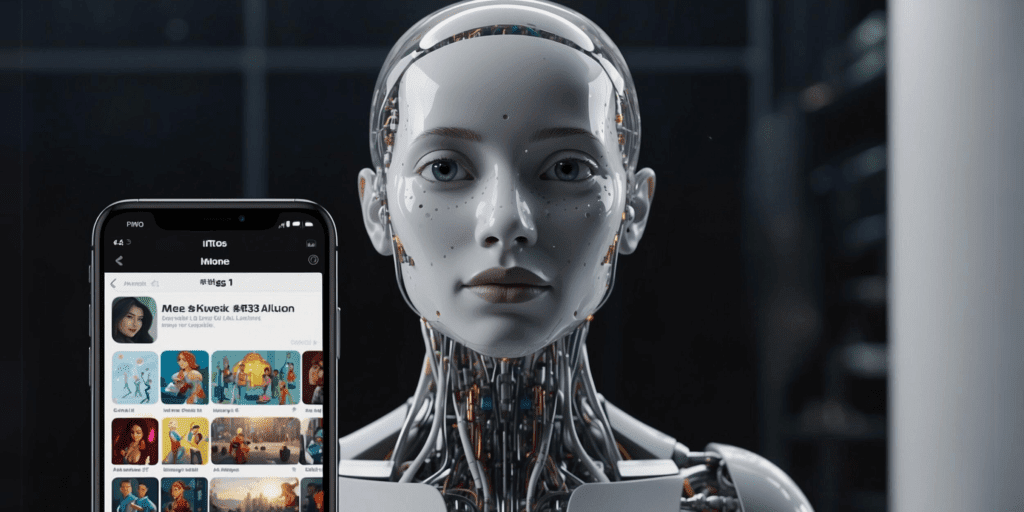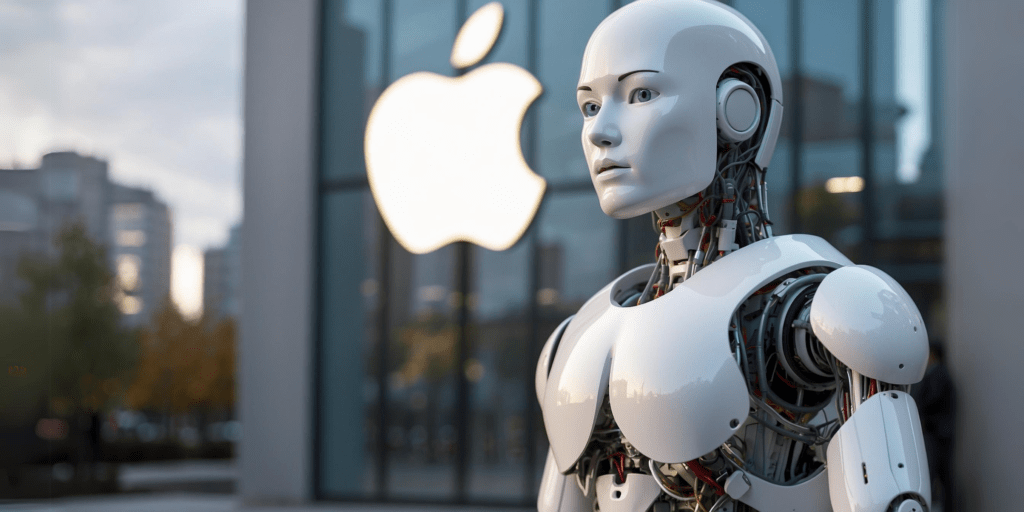Apple is on the verge of a monumental transformation with its upcoming iOS 18, poised to be the most significant software update in iPhone history. Bloomberg’s Mark Gurman has revealed that the tech giant plans to revolutionize the iPhone’s operating system by embedding generative artificial intelligence at its core.
This ambitious overhaul is not just aimed at enhancing user experience. Still, it indicates Apple’s commitment to staying at the forefront of technological innovation.
By integrating Gen-AI into critical areas such as Siri and the Messages app and extending its reach to other applications like Apple Music, Pages, and Keynote, Apple is set to redefine the capabilities of its devices.
This move also reflects Apple’s broader strategy to compete in the rapidly evolving AI landscape, where it seeks to catch up with industry leaders such as OpenAI, Microsoft, and Google.
With anticipation building for the official announcements at Apple’s developers conference later this year, the tech community is eagerly awaiting what could be a landmark moment in the evolution of iOS.
Generative AI Integration in iOS 18
Generative AI Integration in iOS 18 marks a significant leap forward for Apple, as it embeds advanced artificial intelligence technologies directly into the iPhone’s operating system.
According to insights from Bloomberg’s Mark Gurman, this integration is set to revolutionize how users interact with their devices, enhancing the functionality and responsiveness of applications like Siri and the Messages app.
The introduction of generative AI into iOS 18 will enable these apps to field questions and autocomplete sentences with unprecedented accuracy and nuance, making digital interactions more intuitive and efficient.
companies initiative to incorporate generative AI extends beyond just Siri and messaging. The company is ambitiously planning to leverage these technologies across various applications, including entertainment and productivity suites such as Apple Music, Pages, and Keynote.
This suggests a transformative approach to creating, consuming, and managing content, offering users a more personalized and engaging experience.
In preparation for this substantial update, It has reportedly discussed using its content to train its generative AI models with significant news and publishing organizations.
This move indicates a comprehensive effort to ensure that the AI systems are well-informed and capable of generating relevant and accurate outputs, thereby enhancing the overall user experience.
The integration of generative AI into iOS 18 underscores Apple’s commitment to innovation and positions the company to make a significant impact in the competitive tech landscape, where AI capabilities are increasingly becoming a benchmark for excellence.
With these advancements, Apple aims to redefine what’s possible with smartphone technology, setting a new standard for intelligence and interactivity in mobile operating systems.
Upcoming Apple Products
They are gearing up for an exciting phase of product launches, with significant updates planned across its iPad and MacBook lines. According to Bloomberg’s Mark Gurman, the tech giant is preparing to unveil several new iPads and the next generation of MacBooks equipped with M3 chips as early as March.
This announcement is part of Apple’s continuous effort to innovate and enhance its product offerings, maintaining its competitive edge in the technology market. The upcoming iPad Pro model is particularly noteworthy, and it is expected to be available in two display sizes – 11-inch and 13-inch.
For the first time, these models are anticipated to feature OLED display panels, marking a significant upgrade in screen technology that promises more vibrant colours and deeper blacks than LCD screens.
The iPad Air is set to receive a size upgrade, moving to a larger 12.9-inch panel from its current 10.9-inch display. This shift offers users a larger canvas for creativity and productivity. It aligns the iPad Air more closely with the iPad Pro lineup regarding screen real estate.
They plans to implement the M3 chipset for the MacBook Air, promising enhanced performance and efficiency. This update is expected to solidify the MacBook Air’s position as a lightweight yet powerful computing solution for professionals and casual users.
Wi-Fi 6E support is set to offer faster wireless connectivity, further enhancing the user experience by ensuring smoother online activities, from streaming to file transfers.
Apple is also expected to introduce new accessories for the iPad, including updated versions of the Magic Keyboard and Apple Pencil.
These accessories complement the new iPad models, providing users with improved typing experiences and more precise input for drawing and note-taking.
These upcoming product launches reflect Apple’s strategy to continuously refresh its lineup with cutting-edge technology and user-centric features. By doing so, Apple aims to meet the evolving needs of its customer base and stay ahead in the highly competitive tech industry.

New AI Features and Developer Tools
In an ambitious move to harness the latest advancements in artificial intelligence, Apple is set to introduce a host of new AI features and developer tools within its upcoming iOS 18 update, signalling a significant shift in how users and developers engage with its ecosystem.
This integration of generative AI is poised to revolutionize core applications such as Pages and Keynote with auto-summarizing and auto-complete functionalities, simplifying content creation and editing by offering contextually relevant suggestions.
Apple Music is expected to benefit from AI-driven personalization, with the service automating playlist creation to tailor music experiences to individual user preferences, habits, and contexts.
A significant overhaul of Siri is also on the horizon, addressing longstanding criticisms by enhancing its understanding, responsiveness, and overall utility as a voice assistant.
This clearly indicates Apple’s commitment to refining its AI capabilities to provide a more intuitive and seamless user experience across its device ecosystem. The introduction of new versions of Xcode and other programming tools incorporating generative AI stands to transform the development landscape.
These tools aim to streamline coding processes, offering code completion suggestions and potentially generating code snippets from natural language prompts, boosting productivity and fostering innovation.
They are developing an AI-powered system designed to revolutionize the AppleCare experience. This system will leverage AI to assist AppleCare employees in delivering more accurate and efficient technical support, utilizing AI-driven diagnostics and solutions to troubleshoot customer issues effectively.
These enhancements reflect Apple’s strategic vision to create a more intelligent, integrated, and user-centric ecosystem.
By embedding generative AI across its operating system and services, Apple is not just improving its offerings’ functionality and usability but also empowering its developer community to create more sophisticated and intuitive applications.
This comprehensive approach underscores Apple’s dedication to innovation and its ambition to redefine the technology landscape.
Challenges and Competition
They are embarking on integrating generative artificial intelligence into iOS 18, it faces many challenges and stiff competition from other tech giants. Despite its status as a leading innovator in consumer technology, Apple is entering a race where companies like Open AI, Microsoft, and Google have already established substantial leads with their AI capabilities.
These firms have been at the forefront of Gen-AI technology, capitalizing on it to enhance their products and services, thereby setting high expectations in the market.
Their slow adoption of AI, particularly compared to its competitors, poses a significant challenge. The tech landscape is rapidly evolving, with AI being a critical driver of innovation.
As such, Apple’s delay in fully integrating AI into its ecosystem risks leaving it behind, especially as consumers become more accustomed to the advanced AI features offered by other platforms.
Apple’s plans to overhaul Siri and introduce new AI features come at a time when public and industry expectations for AI functionality are at an all-time high.
Long-standing complaints about Siri’s reliability and functionality underscore Apple’s uphill battle in revamping its voice assistant to meet user expectations.
Competitors like Google Assistant and Amazon Alexa have set high standards for what users expect from AI-driven personal assistants, putting pressure on Apple to match and exceed these capabilities.
The competitive landscape is further intensified by the impending launch of new products from rivals, such as Samsung’s Galaxy S24, which is reported to include a suite of AI features.
These features, ranging from AI-generated images to voice recognition, highlight the broader industry trend towards deeply integrated AI functionalities, challenging Apple to match these innovations in its upcoming iOS update.
Despite these challenges, Apple’s strategy to integrate Gen-AI across its operating system and services could be a game-changer, potentially redefining user experiences and setting new standards for what smartphones can do.
Achieving this vision requires Apple to navigate the complexities of AI technology development, user privacy concerns, and the intricacies of competitive differentiation.
To succeed, they will need to leverage its strengths in design, user experience, and ecosystem integration, ensuring that its AI features not only match but surpass its competitors’ offerings.
This entails a significant investment in AI research and development, partnerships with content creators and news organizations for AI training, and a commitment to privacy and security that has long been a hallmark of the Apple brand.

Conclusion
Apple’s ambitious integration of generative artificial intelligence (Gen-AI) into iOS 18 represents a pivotal moment in the company’s history, underscoring its commitment to innovation and its pursuit of enhancing the user experience.
As they prepares to introduce this groundbreaking update, it faces the dual challenge of catching up with competitors who have already made significant advances in AI and meeting the high expectations of its users.
The success of iOS 18 and its AI features will be critical in determining Apple’s position in the rapidly evolving tech landscape, where AI capabilities are increasingly becoming a key differentiator.
The integration of Gen-AI across Apple’s ecosystem—from Siri and the Messages app to productivity and entertainment applications—promises to redefine how users interact with their devices, making these interactions more intuitive, efficient, and personalized.
Achieving this vision requires Apple to navigate the complexities of AI technology, address privacy concerns, and deliver innovations that truly set its products apart from those of its competitors.
As Apple moves forward, the company’s ability to leverage its design prowess, ecosystem integration, and commitment to user privacy will be crucial.
These strengths, combined with a strategic focus on AI, have the potential to not only redefine the smartphone experience but also to reaffirm Apple’s reputation as an innovator in the tech industry.
The anticipation surrounding the official announcements at Apple’s developer conference highlights the tech community’s eagerness to see how Apple will translate its Gen-AI ambitions into reality.


